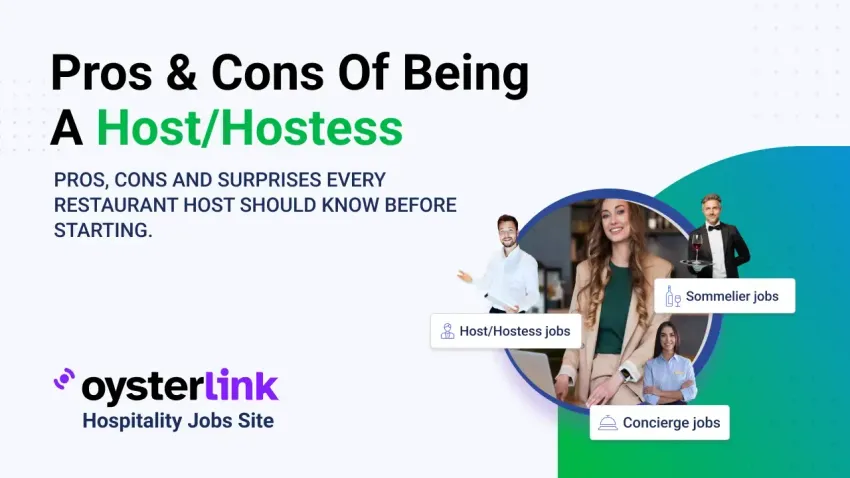Learn the pros and cons of being a Host/Hostess to determine if this dynamic hospitality job matches your goals and lifestyle.
What the Role Involves: Pros and Cons of Being a Host/Hostess
Being a Host/Hostess means more than greeting guests. The role involves managing reservations, coordinating seating and setting the tone for the dining experience.
While it offers valuable customer service skills and flexible scheduling, it also comes with challenges like long hours on your feet and handling demanding guests.
Top Benefits: Pros of Being a Host/Hostess
- Gain transferable skills in communication, conflict resolution, and problem-solving.
- Benefit from varied shifts, ideal for students, part-timers, or those with other commitments.
- Build relationships with managers, coworkers, and patrons that can lead to future opportunities.
- Some establishments offer shared tips or performance bonuses to boost income.
Common Challenges: Cons of Being a Host/Hostess
- Juggling reservations, walk-ins, and impatient guests during peak hours can be stressful.
- Expect nights, weekends, and holiday shifts that may disrupt personal plans.
- Most shifts require being on your feet at the entrance for hours at a time.
- Dealing with complaints about wait times or reservations demands patience and professionalism.
Host/Hostess Salary: How Pay Fits Into the Pros and Cons
The average Host/Hostess salary in the United States is about $30,750 per year, or $14.78 per hour, with additional tips boosting overall earnings.
Pay typically ranges from $21,530 at the low end to $38,830 at the high end, depending on location, type of establishment and experience.
This chart shows the typical pay for Hosts and Hostesses in the U.S. The lowest earners make around $21,500 a year, while the highest earners make close to $39,000.
Career Growth and Opportunities Beyond Hosting
Hosting can be a stepping stone in hospitality.
Many Hosts/Hostesses transition into supervisory roles, while others use the customer service and networking skills they’ve gained.
For more tips, read our complete guide on How To Be a Good Restaurant Host/Hostess.
Is It Worth It? Weighing the Pros and Cons of Being a Host/Hostess
If you love interacting with people, can handle a fast-paced environment, and want a job that offers flexibility, being a Host/Hostess can be a great fit.
However, be prepared for potential challenges like demanding guests, long hours on your feet and weekend shifts.









Loading comments...